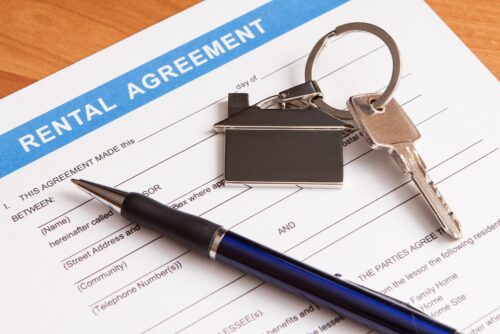TENANT RIGHTS AND LANDLORD OBLIGATIONS: A GUIDE TO RENTAL LAWS
Introduction:
Renting a property is a common and often necessary choice for many individuals and families. Whether you’re a tenant searching for a new place to call home or a landlord looking to lease out your property, it’s important to understand the rights and obligations that govern the landlord-tenant relationship. Rental laws vary from country to country and even within different regions, but this article aims to provide a comprehensive guide to tenant rights and landlord obligations to help you navigate the rental process with confidence.
- Lease Agreements:
A lease agreement is a legally binding contract between a landlord and a tenant that outlines the terms and conditions of the rental arrangement. It is crucial for both parties to carefully review and understand the lease agreement before signing it. The lease agreement should cover essential details such as the duration of the lease, rent amount, payment schedule, security deposit, maintenance responsibilities, and any additional provisions specific to the property.
- Tenant Rights:
As a tenant, you have certain rights that are protected by rental laws. These rights may include:
- Right to Habitable Premises: Landlords are obligated to provide tenants with a safe and habitable living environment. This means that the property must meet basic health and safety standards, including proper maintenance of the premises, functioning utilities, and compliance with building codes.
- Right to Privacy: Tenants have the right to privacy within their rented premises. Landlords should not enter the property without proper notice, except in cases of emergencies or when granted permission by the tenant.
- Right to Non-Discrimination: Landlords cannot discriminate against tenants based on factors such as race, religion, gender, national origin, disability, or family status. Fair housing laws protect tenants from discriminatory practices during the rental process.
- Right to Security Deposit Protection: In many jurisdictions, landlords are required to place tenants’ security deposits in a separate account and provide a detailed account of any deductions made from the deposit at the end of the tenancy. This protects tenants from unfair withholding of their deposit without valid reasons.
- Right to Repairs and Maintenance: Landlords have an obligation to maintain the rental property in a safe and habitable condition. Tenants should promptly report any necessary repairs or maintenance issues to the landlord, who should address them in a reasonable timeframe.
- Landlord Obligations:
While tenants have rights, landlords also have certain obligations that they must fulfill. These obligations may include:
- Property Maintenance: Landlords are responsible for maintaining the rental property in a habitable condition. This includes addressing structural issues, plumbing and electrical problems, pest control, and other necessary repairs.
- Compliance with Local Laws and Building Codes: Landlords must adhere to all relevant local laws, regulations, and building codes. This ensures that the property meets the required standards for safety, occupancy, and health.
- Security Deposit Handling: Landlords should handle tenants’ security deposits in accordance with the applicable laws. This includes properly storing the deposit, providing a receipt, and returning the deposit within the specified timeframe after the tenancy ends, minus any legitimate deductions.
- Providing Notice: If landlords need to enter the rental property for inspections, repairs, or other reasons, they must provide reasonable notice to the tenant. The notice period may vary depending on local laws and the nature of the entry.
- Non-Retaliation: Landlords cannot retaliate against tenants for exercising their rights, such as filing complaints or requesting repairs. Retaliation may include eviction, rent increases, or harassment.
- Dispute Resolution:
Despite the best efforts of both tenants and landlords, conflicts may arise during the course of a rental agreement. In such cases, it’s essential to understand the available avenues for dispute resolution. This may involve mediation, arbitration, or legal action, depending on the severity and nature of the dispute. Familiarize yourself with the local laws and procedures regarding dispute resolution to ensure a fair and just resolution.
Conclusion:
Understanding tenant rights and landlord obligations is crucial for a harmonious landlord-tenant relationship. By familiarizing yourself with the rental laws specific to your region, you can protect your rights and fulfill your obligations as a tenant or landlord. Consult with local housing authorities or legal professionals for further guidance and ensure that your rental agreements comply with the applicable laws. Being well-informed empowers both parties and contributes to a positive rental experience for everyone involved.



